All about the profession of a mechanic for the release of vehicles on the line
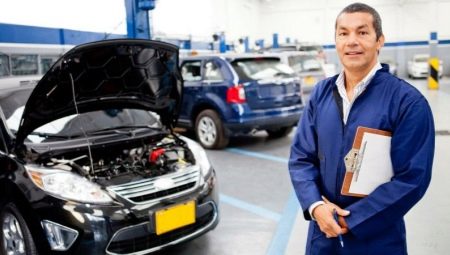
In the past few years, blue-collar jobs have become popular among graduates and high school students. This is due to many reasons, for example, a short training period and high salaries. In today's article, we will talk in detail about the features of the profession of a mechanic for the release of vehicles on the line.
Who is that?
Initially, it must be said that a mechanic for the release of vehicles on the line is a position that requires a large amount of knowledge, skills and abilities from the applicant. The work of a specialist is directly related to road transport, respectively, it is desirable to have an interest in this area. The serviceability of the transport he serves depends on the mechanic. To do this, a specialist must conduct regular technical inspections, and timely replace faulty and defective parts.
It is important that in carrying out these functions, the specialist uses the advanced experience of Russia and foreign countries.
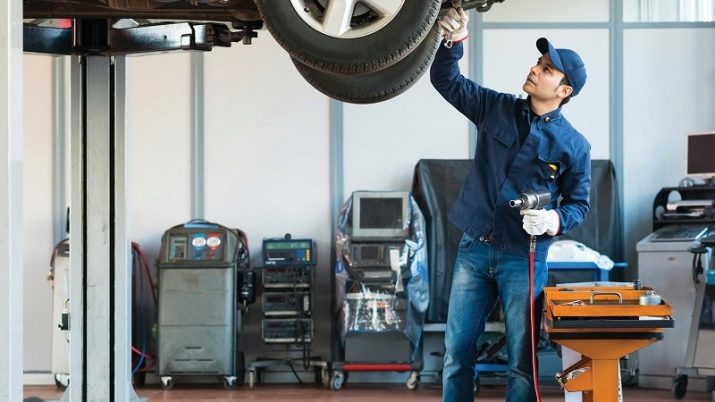
As a rule, the mechanic for the release of vehicles to the line, working at the enterprise, is included in the general structure of the company. He reports to the higher management: the chief engineer, the chief mechanic and the director of the vehicle fleet.
Let's consider several key features of the profession.
- The need for professional knowledge and skills. To be relevant in the labor market and a specialist in demand among employers, it is necessary to obtain an appropriate education.Due to the nature of the work, the mechanic for the release of vehicles on the line must be theoretically savvy, as well as have a wide range of practical skills.
- Possibility of career growth. Professionals with a high level of knowledge can apply for the best positions. So, starting from the position of an ordinary mechanic for the release of vehicles on the line, you can take the position of the head of the enterprise. At the same time, do not forget about the possibility of opening your own car workshop.
- High profit payment... Typically, the salaries of technical professionals are significantly higher than the national average. This characteristic of the profession attracts a large number of young people to the described sphere.
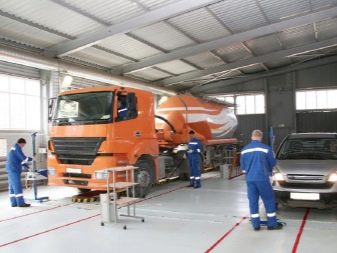

Responsibilities and requirements
The mechanic for the release of vehicles on the line carries out his functional duties on the basis of generally accepted official documents. The work of a specialist is regulated by the job description and professional standard. It is imperative that you carefully familiarize yourself with such documents before you officially find a job.... This is due to the fact that the mechanic may be held liable for non-fulfillment or incorrect fulfillment of his duties.
Consider the main responsibilities of a professional:
- technical inspection of transport (moreover, this event should take place regularly, and for these purposes it is necessary to draw up a clear schedule or plan);
- repair work, replacement of faulty and defective parts;
- identification of the causes and consequences of breakdowns;
- use of modern techniques;
- control and monitoring of vehicle operation;
- preparation of documentation (reports, technical passports, etc.);
- maintenance of accounting documents (for example, a sheet of metering devices);
- preparation of purchase orders for the parts necessary for correct operation;
- compliance with safety regulations;
- following the internal order;
- management functions in relation to subordinate subordinate employees.
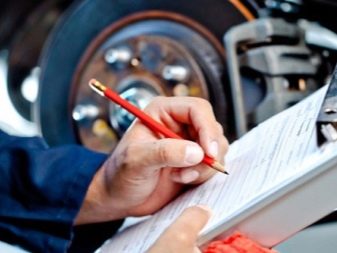
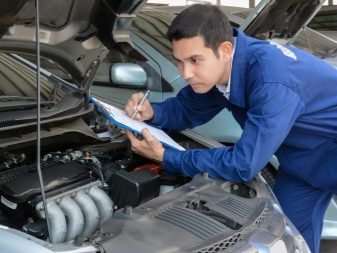
It should be borne in mind that the above list of responsibilities is not closed. It can be supplemented and adjusted depending on the requirements and wishes of the employer, as well as on the specifics of the enterprise. Accordingly, in the process of finding a job, you must be ready to adapt to the conditions of the external environment.
In addition, the employer can put forward requirements for the theoretical training of specialists. The compulsory knowledge of a mechanic for the release of vehicles on the line includes:
- knowledge of labor legislation;
- knowledge of all legislative and regulatory acts that govern the work of a specialist;
- understanding the organizational aspects of work;
- the ability to read and interpret various technical documentation (for example, instructions for the operation of machinery and equipment), etc.
Based on this information, it can be concluded that a mechanic for the release of vehicles to the line is a specialist who should know a lot and be able to.
Moreover, the more qualifications a specialist has, the more in demand and relevant he will be in the labor market.

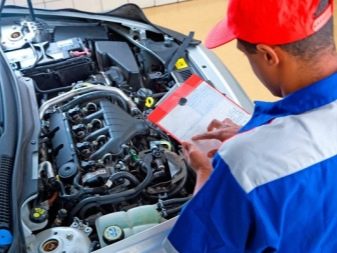
Personal qualities
In addition to professional skills and abilities, personal qualities play a huge role for a specialist. Often, the employer prescribes in detail the requirements for personal characteristics in the vacancy announcement, respectively, it must be read as carefully as possible before applying for the position.
The most important personal qualities of a mechanic for the release of vehicles on the line include:
- perseverance;
- tendency to hard work;
- attentiveness;
- Analytical mind;
- a penchant for technical thinking;
- lack of bad habits;
- love of technology;
- a responsibility;
- punctuality, etc.
Only if you combine professional and personal characteristics can you be successful in the professional field. Remember that the employer hires not only a highly qualified specialist, but also a person who will fit well into an already established team.


Education
In order to qualify for the position of a mechanic for the release of vehicles on the line, it is necessary to undergo appropriate training. At the same time, your professional studies can take place both in a secondary specialized and in a higher educational institution. In most cases, the second option is preferable, as it will allow you to quickly move up the career ladder.
Benefits of higher education:
- high-quality and long-term preparation;
- the curriculum includes both practical and theoretical knowledge;
- a diploma from a higher education institution enables a specialist to quickly advance up the career ladder, as well as apply for leadership positions, etc.
On the other hand, studying in a secondary specialized institution (for example, in a technical school or college) has the following advantages:
- short duration of training;
- low cost;
- practice-oriented, etc.
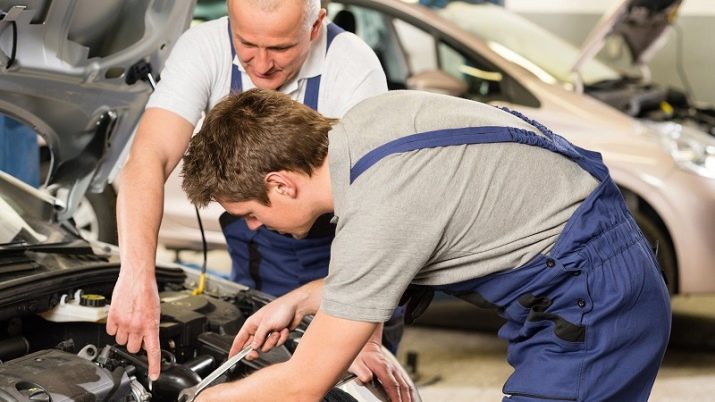
Thus, it is very important to decide in advance which educational institution you will enroll in. Remember that you can enter the secondary specialized after the 9th grade, and the university - after the 11th grade. In addition, it should be said that in some cases, and for some employers, a retraining course will suffice. Before entering the chosen educational institution, it is recommended to visit the admissions office. Thanks to this, you can find out what exams you need to take for admission, as well as inspect the educational institution itself, get acquainted with the teachers.
In the process of gaining knowledge it is necessary to show attention, responsibility and seriousness... So, always strive to get the highest scores, since some employers, when hiring applicants, ask to demonstrate not only the diploma itself, but also an extract with grades. It is also important to be prepared for the fact that in the process of obtaining an education you will have to master a large number of complex technical disciplines. Practices and internships need to be taken seriously. First, through these activities, you will be able to acquire the skills you need to work. Secondly, if you are able to show yourself on the good side, you will be able to get a job in the future at the enterprise where you did your internship.
The duration of training can be from 3 to 6 years (in some cases, this period can be increased)... After graduation, you need to pass certification and pass qualifying exams. Only then can you be considered a professional mechanic for the release of vehicles on the line.
However, even after that, it is worth continuing to pay attention to your education: attend thematic conferences, seminars, lectures, etc.

A responsibility
In addition to responsibilities, the job description and professional standard contain provisions that relate to the responsibility of a specialist. So, as a general rule, the mechanic for the release of vehicles on the line is responsible in such cases:
- financial damage (in this case, material losses can be committed in relation to both the enterprise itself, where the mechanic works, and in relation to colleagues, clients, etc.);
- providing the authorities with inaccurate information (and this may relate to both their personal data and information regarding the performance of technical or repair work);
- non-compliance with the internal schedule, plan and work schedule;
- non-compliance with the established deadlines;
- refusal to comply with orders of higher management;
- non-compliance with safety standards (labor, fire, etc.).
Depending on how serious the offense is, liability can vary in intensity, from disciplinary to criminal.
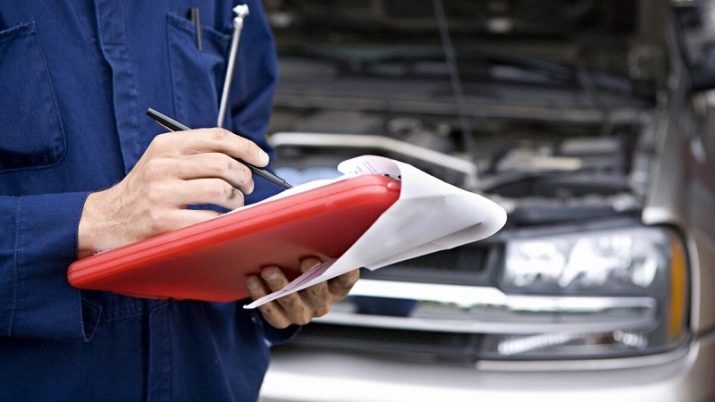
Place of work
Mechanics for the release of vehicles on the line can work both in private workshops and in state vehicle fleets. In general, this specialist is an integral employee of almost any trucking company.
It should be borne in mind that earnings will depend on the place of work. So, the greatest material remuneration for their work will be received by those specialists who work in private workshops in large cities. But mechanics who work in state enterprises located in the provinces receive small wages.
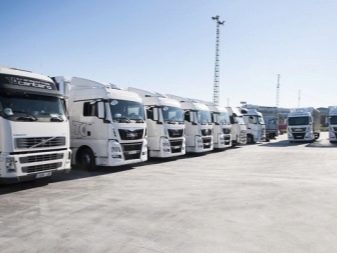

In the next video you will find an interview with a control mechanic (controller of OJSC "Transport"), in which he talks about everyday life.







